Billy Bremner gets the Doncaster Rovers young guns firing: Revisiting The Catt Chronicles - pt2
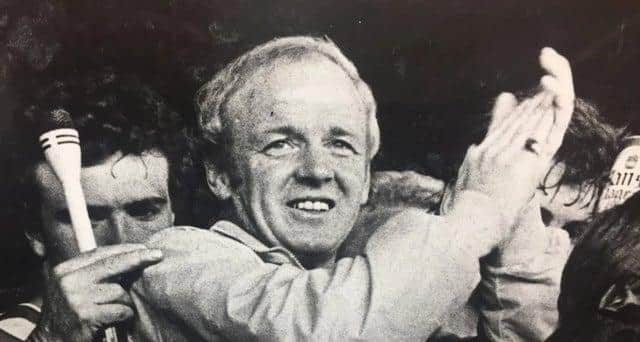

Each piece covered a ten year period in Rovers’ history, with Catt reflecting on the big events and recollecting the managers and top players of the time.
Here, we continue our revisit of the series, as we look at part two which covers 1976/77 to 1985/86.
*********
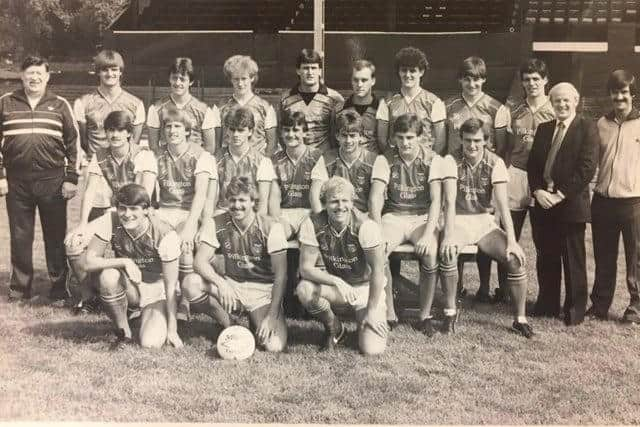

Advertisement
Hide AdAdvertisement
Hide AdMy abiding memory of the first decade was the football genius that was Alick Jeffrey. And when it came to the next ten years one man again stood out above the rest.
MANAGERS
Billy Bremner was probably the most charismatic person I’ve ever met.
As a reporter I covered royal visits, interviewed prime ministers and met sports stars like George Best, Paul Gascoigne and Jimmy White. But there was something special about Billy and it was a joy to be in his company.
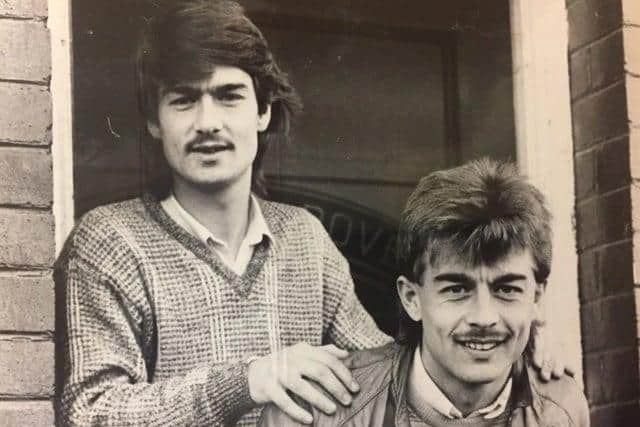

Roger Reade, the club secretary at the time, summed it up best. He said when Billy walked into a room it was as though someone had switched a light on.
Advertisement
Hide AdAdvertisement
Hide AdHe just had an extraordinary effect on people and created a remarkable atmosphere where players, coaches, groundsman, laundry ladies and other staff all felt they were in it together and would do anything for him.
Billy had an infectious enthusiasm for the game which seemed to rub off on everyone around him.
He loved the banter and camaraderie and encouraged the players to go out for a drink and socialise with each other. He also had an uncanny empathy with the fans. Billy was one of the first managers to take the players down a local pit. He wanted to show them how hard the supporters worked and impressed on the players to do the same and never let the fans down.
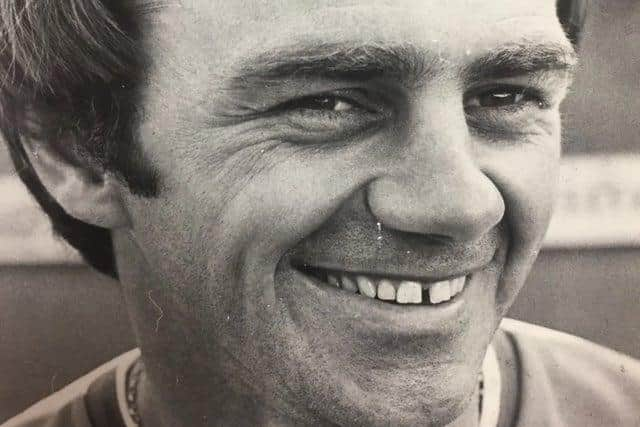

He was a real leader of men. Through him I got to meet some of his ex-teammates like Jack Charlton, Norman Hunter, Allan Clarke and Johnny Giles - massively strong characters – who all became managers themselves. But he was the captain of that Leeds United team - a leader among leaders.
Advertisement
Hide AdAdvertisement
Hide AdAlthough we maintained a professional relationship we also eventually became friends. We shared a love of boxing and he once told me if he had not been a footballer he would have fancied being a boxer himself.
He was also the proudest of Scotsmen and I will never forget the quote he came out with after losing his job at Leeds United when a reporter asked him about his future and if he fancied managing abroad. Quick as a flash Billy replied ‘what do you mean, I am abroad!’
There was a photo in his house of him alongside another proud Scot Bill Shankly, who once cheekily tried to sign him for Liverpool, and former world heavyweight champion Jack Dempsey.
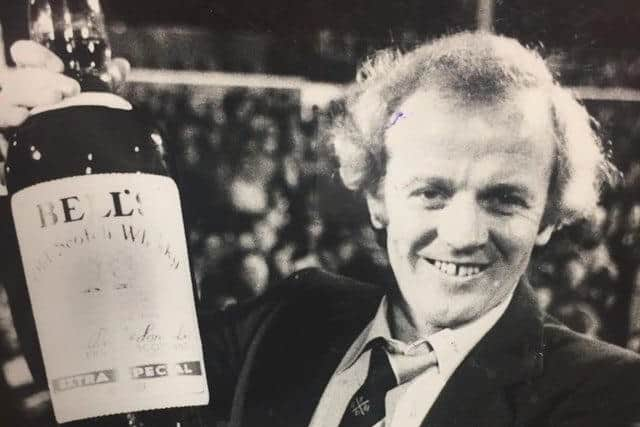

Billy was naturally gifted as a player and I don’t think he found coaching easy, but as a motivator he had few equals. Youth coach Steve Beaglehole told me he once sat in on one of his pre-match talks and was that pumped up he jumped up raring to go when it finished, even though he wasn’t playing. Rovers won 4-0 that day.
Advertisement
Hide AdAdvertisement
Hide AdI think it took Billy a while to find his feet as a manager relating to players not on the same wavelength when he arrived in November 1978.
But he soon came up with a winning formula blending youth with experience and ended the club’s decade in the doldrums by winning promotion in 1980/81.
Money was tight in those days and Bremner did it with one of youngest squads in the history of the club.
Seven of the 11 with the most appearances that season were 21 or under at the start of the campaign. Ian Snodin and David Harle celebrated their 17th birthdays the day before the season started, Steve Lister and Daral Pugh were just 19, Billy Russell and Glynn Snodin were 20 while keeper Willie Boyd was a ‘veteran’ of 21.
Advertisement
Hide AdAdvertisement
Hide AdNowadays you would get one or two that age playing now and again. That season the magnificent young seven each made more than 30 league appearances.
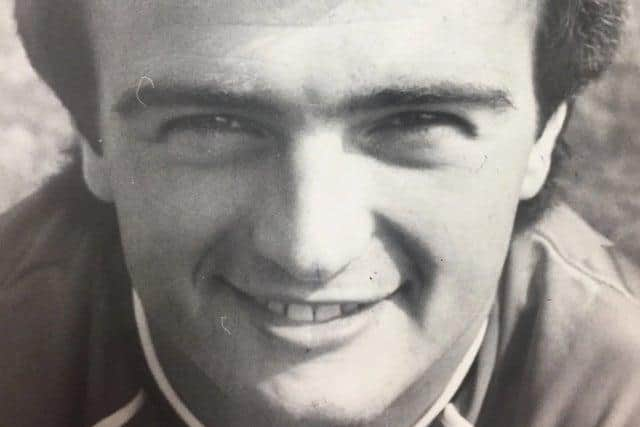

But Bremner cleverly played them alongside good older professionals like Alan Warboys, Alan Little, Hugh Dowd and Pat Lally.
Bringing young players through was Billy’s forte. He had an inspirational effect on them and Beaglehole once told me that if Bremner had been a youth coach he would have been the best in the country by a mile.
Glenn Humphries, Colin Douglas and Neil Woods were among other teenagers given their debuts by Bremner and one of the youngest, towards the end of the manager’s first reign, 16-year-old Micky Nesbitt scored after two minutes on his debut at Newport.
Advertisement
Hide AdAdvertisement
Hide AdI’ll never forget jovial youth team manager Roy Cork chortling with delight when the goal went in. Tragically, eight days later Roy was dead after a stabbing incident in Edlington.
By then I was travelling on the team coach to away matches. The first time was towards the end of the 1980/81 promotion season at Halifax in March and I was nervous in case they lost and thought of me as a Jonah. Fortunately they won 3-0 and that was me on the coach for the next couple of decades.
Eventually I joined the main card school on the coach, playing a rummy type game called Aces to Kings with Billy, Alan Warboys and Glynn Snodin.
As we neared the ground a few other players would join in for knockout whist. It was a school of hard knocks because if you did not play the right card at certain times you would get slaughtered.
Advertisement
Hide AdAdvertisement
Hide AdBilly had an amazing will to win whether it was football, cards, dominoes or carpet bowls. And if he couldn’t win he wanted it to be one of the players and not me.
He was very clever psychologically and often the jokes and card tactics would be at my expense to have a laugh and get the players banded together in the right frame of mine for the game ahead.
Unfortunately, after two seasons in Division Three the club was plagued by injuries with little money to spend and came back down.
Everyone was despondent but Billy remained undaunted and told me to cheer up because we would go straight back up again. I was surprised because it wasn’t like him to say anything like that for the sake of it.
Advertisement
Hide AdAdvertisement
Hide AdBut, true to his word, he made four great summer signings Ernie Moss, Bill Green, Andy Kowalski and John Breckin, and Rovers finished runners up to York in a terrific 1983/84 campaign which included a run of 25 games with only one defeat.
When he eventually left for Leeds in October, 1985 Rovers had just beaten Wolves 2-1 away and, with multi-millionaire Peter Wetzel having joined the board, Billy believed the club could push for a return to Division Two.
It was harder for him to say goodbye to Rovers than people thought at the time but the lure of Leeds was irresistible.
Dave Cusack became the youngest boss in the League when he succeeded Bremner and kept Rovers in the top half to the end of the season.
Advertisement
Hide AdAdvertisement
Hide AdHis first signing was a good one – popular keeper Andy Rhodes from Barnsley for £20,000 - and he also brought in Brian Flynn.
Bremner’s arrival preceded the dying embers of Stan Anderson’s reign before he left for Bolton with the club on the slide following the sale of prolific strikers Peter Kitchen and Brendan O’Callaghan.
But there was time for Stan to sign another striking star - Tony Woodcock, on loan from Nottingham Forest. He only stayed a month but made a big impact, returned to Forest where he won the European Cup two years later and went on to play more than 40 times for England. There was a rumour at the time that Rovers could have signed him permanently but it was a myth and I learned later that Clough no intention of letting him go.
PLAYERS
The stand out player during my second decade reporting on the club was Ian Snodin.
Advertisement
Hide AdAdvertisement
Hide AdHe was just a scrawny kid when Bremner first saw him on the training ground after brother Glynn had brought him along for a kickabout during the school holidays. But the wily Scot immediately saw something in him and was quick to sign him for the junior team although he hardly played many games at that level because he was in the first team at 16 – with Bremner making his Rovers debut alongside him!
Billy was 36 then and had not played league football for almost a year but I think he was keen to help Ian through the game when he brought him on as sub – and they won 1-0 against Bournemouth.
Ian went from strength to strength and I think Billy saw something of himself in him with Snodin tackling twice his weight and showing a burning desire to win.
Snodin could play box to box and produced some superb long range passes and, as he grew older, he developed phenomenal pace. Along with Rufus Brevett he was the probably the quickest I’ve seen at Rovers and it was inevitable he would eventually move to a higher status club.
Advertisement
Hide AdAdvertisement
Hide AdI was with both Bremner and Snodin the night before he signed for Leeds and it was quite an emotional occasion.
They had enjoyed almost a father and son relationship with Billy always making sure he kept his feet on the ground.
I remember once Liverpool boss Bob Paisley coming to watch him and Snodin being upset with Bremner for playing him at right back that night. Billy shot him down saying ‘it’s not the Ian Snodin show son, you play where I tell you.’
But the respect they had for each other was immense.
The night Snodin left Bremner told him ‘wherever you go, whatever you do, just remember you’re the best.’
Advertisement
Hide AdAdvertisement
Hide AdAnd when Ian returned to the area after leaving Everton he bought a big house and called it Bremner Lodge.
Ian’s brother Glynn was another exceptional player.
He was predominantly a left back but had a cannonball shot from free kicks and finished top scorer one season with 19 goals.
The brothers’ father Colin was a smashing bloke but could not bring himself to watch them play and would sometimes stand outside the ground. It made him nervous and he did not want to hear anyone saying anything bad about his sons, although that would have been a rarity.
Alan Warboys was another great player who had earned Bremner’s respect when he played alongside him at Hull.
Advertisement
Hide AdAdvertisement
Hide AdBilly told me he used to come in after games breathless with his shirt covered in perspiration because of the effort he had given and he was a tremendous inspiration to the younger players.
Alan Little was another cult hero, a real hard man and his tackling was legendary.
In March 1984 I was tipped off that a wealthy man was about to join the board and when Peter Wetzel came along it meant that Rovers had some spending power in the transfer market.
I interviewed him the night he arrived and asked him how much he was worth as it was an important part of the story. He said I was cheeky but then staggered me when he revealed he owned a third of the SR Gent clothing company which made him worth £24 million!
Advertisement
Hide AdAdvertisement
Hide AdAfter that we got on really well and once when I said I wasn’t going to a pre-season reserve match at Stocksbridge he sent a car to pick me up!
Wetzel’s arrival meant that Bremner was able to splash the cash and although his most expensive signing John Philliben did not fulfil his potential, he made some excellent purchases in Jim Dobbin, Alan Brown, John Buckley and teenager Ray Deans.
Buckley made a terrific debut at Preston watched by legendary Deepdale winger Tom Finney who remarked afterwards to Bremner what a good player he had signed.
Deans looked a real powerful force in attack but suffered a bad injury which meant he had to retire from football at the age of 20 and the same fate befell Brown not long after scoring a hat trick at Reading. I always thought the two would have made a great striking partnership but it was not to be.
MATCHES
Advertisement
Hide AdAdvertisement
Hide AdRovers won two memorable games under Bremner with nine men in the 1984/85 season and also beat top flight opposition QPR in the FA Cup.
Bradford City were top of the table and unbeaten at home when Rovers went there on Boxing Day and had Aiden Butterworth and David Harle sent off only to clinch victory with a 30-yard free kick from Glynn Snodin.
In April they had Ray Deans and Glynn Snodin controversially dismissed inside 34 minutes at Lincoln but still won 2-0 following an extraordinary team display.
John Buckley was a brilliant dribbler and almost impossible to dispossess when on top form and I can still hear Bremner shouting ‘give it to Bucky, give it to Bucky’ as they saw out time winning free kick after free kick as Buckley was continually fouled by the frustrated opposition in their desperation to win the ball.
Advertisement
Hide AdAdvertisement
Hide AdThe QPR victory gave Rovers a fourth round tie away to cup holders Everton and around 10,000 fans made the journey from Doncaster to support them.
Going to Goodison that day I remember the players being unusually nervous but they acquitted themselves well on the big stage going down 2-0 to two set pieces.
There was an incredible run of games in 1982 when Belle Vue went goal crazy seeing a total of 36 goals in four successive home matches.
Rovers beat Exeter 6-1 then Reading 7-5 in the craziest game of all with Ian Snodin grabbing the match ball after notching a hat trick despite Kerry Dixon scoring four for the visitors.
Advertisement
Hide AdAdvertisement
Hide AdIt was followed by a 3-6 defeat to Wigan and I remember likening the sequence to a tennis match which failed to produce a decisive set when it ended with a 4-4 draw with Brentford.
I also wrote something about the defence being in danger of becoming a laughing stock which led to one of the few occasions Bremner and I had words.
READ MORE
Comment Guidelines
National World encourages reader discussion on our stories. User feedback, insights and back-and-forth exchanges add a rich layer of context to reporting. Please review our Community Guidelines before commenting.